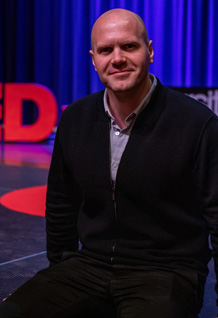Kristian Ove R Myrseth
Professor of Management
Profile
Biography
Kristian was appointed in August 2019 to the School for Business and Society as Professor of Management. Prior to this, Kristian held appointments at Trinity College Dublin, the University of St Andrews, and ESMT Berlin.
He graduated from the University of Chicago Booth School of Business in 2009, with a PhD in Managerial and Organizational Behaviour, following an AB in Economics from Harvard University in 2004.
His research focuses on behavioural decision making and judgement, spanning social-cognitive psychology, consumer behaviour, and behavioural economics. Topics include self-control, cognitive foundations of pro-social behaviour, perceptions of risk and uncertainty, and consumer finance. His research draws on a range of empirical methods, including surveys, laboratory experiments, and field studies.
Kristian’s work is published in a wide range of outlets - interdisciplinary, general, and specialist. This includes PNAS, Psychological Science, The Journal of Finance, Journal of Experimental Social Psychology, and Experimental Economics.
He is an Associate Editor at the Journal of Economic Psychology.
Career
Departmental roles
Director of Postgraduate Research
University roles
Research
Overview
- Psychology of decision making and judgement
- Risk perception
- Self-control
- Cognitive foundations of cooperation
- Consumer finance
Projects
Research group(s)
Grants
Collaborators
Available PhD research projects
Supervision
Teaching
Undergraduate
Postgraduate

School for Business and Society
University of York
Church Lane Building
York Science Park
Heslington
York YO10 5ZFT: +44 (0) 1904 326438
E:kristian.myrseth@york.ac.uk
Room: CL/A/123C
Subject Group
People, Operations and Marketing
Feedback & Support hours
Please contact your tutor to find out when they are running their virtual office hours or to make an appointment for a virtual meeting
